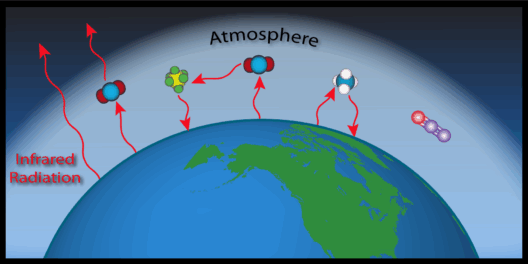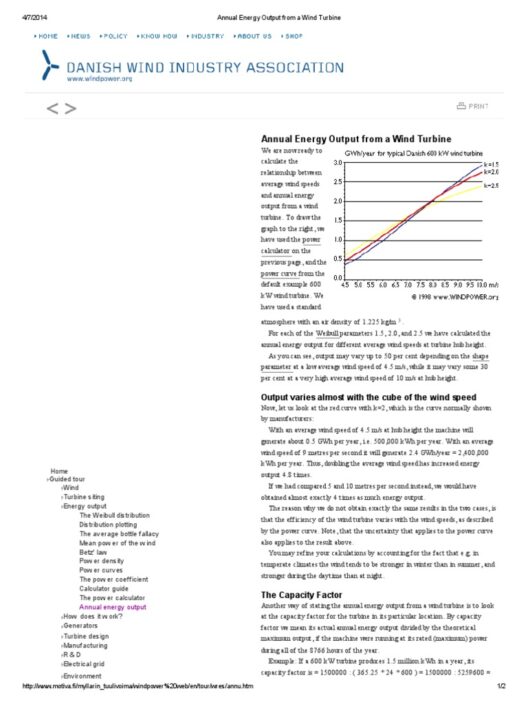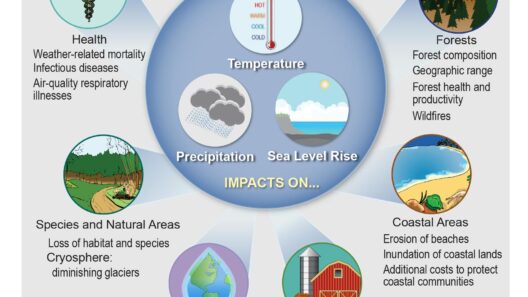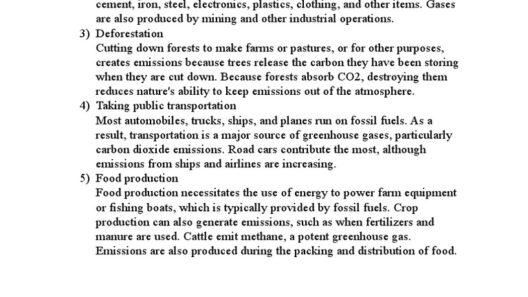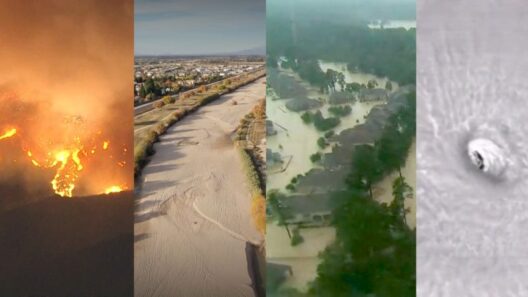Global warming is an existential crisis looming over our blue planet, a phenomenon intertwined with the fabric of our environment and quality of life. Understanding why global warming is detrimental requires delving into its myriad effects, which reverberate across ecological, social, and economic realms. As we dissect these impacts, we will confront the harsh realities and elucidate the urgent need for climate action.
Climate Change: An Understanding of the Unfolding Catastrophe
The crux of global warming stems from the accumulation of greenhouse gases in the atmosphere—primarily carbon dioxide, methane, and nitrous oxide—resulting from human activities such as burning fossil fuels, deforestation, and industrial processes. This enhanced greenhouse effect leads to an overall increase in global temperatures, driving profound changes within our natural systems.
Warming temperatures trigger a domino effect of negative repercussions that touch every corner of existence—from shifting weather patterns to the alteration of ecosystems. The profound changes we can already observe characterize a perpetual state of uncertainty and risk in our world.
Extreme Weather Events: Nature Unleashed
Increased global temperatures exacerbate the frequency and intensity of extreme weather events. Hurricanes become fiercer, droughts stretch longer, and floods inundate regions unaccustomed to such deluge. For instance, hurricanes fueled by warmer sea surface temperatures unleash untold destruction, leaving communities fragmented and economies crippled. The Intergovernmental Panel on Climate Change (IPCC) has issued stark warnings: as global temperatures rise, so too does the severity of these natural disasters.
The cost of such phenomena is not merely financial; it encompasses loss of life, displacement of communities, and the erosion of social cohesion. People living in vulnerable regions often bear the brunt of climate catastrophes, leading to increased migration and human suffering. Understanding this ripple effect is crucial—collectively, we witness the transformation of societal dynamics as climate refugees emerge, often fleeing from territories rendered uninhabitable.
Melting Ice and Rising Seas: Vanishing Frontiers
The aesthetics of nature are under siege as glaciers and polar ice caps continue to melt at alarming rates. Once-majestic ice structures are now collapsing, resulting in rising sea levels that threaten coastal cities and ecosystems worldwide. It’s a poignant reminder of nature’s fragility, where picturesque landscapes give way to stark realities.
This inexorable rise in sea levels not only endangers habitats but also imperils freshwater resources and agricultural lands. Saltwater encroachment on coastlines disrupts access to clean water, with dire implications for human health and agricultural viability. Low-lying nations, often the least equipped to adapt to these changes, face existential threats that compel immediate international action.
Ecological Disruption: The Fragile Tapestry of Life
Global warming wreaks havoc upon ecosystems, disrupting the delicate balance of life. Sensitive species find themselves facing existential threats as their habitats evolve faster than their natural adaptation can accommodate. Endangered species face an uphill battle, while invasive species encroach and establish dominance in new environments, further destabilizing the ecological order.
Coral reefs, the marvels of marine biodiversity, suffer from ocean warming and acidification, resulting in bleaching events that devastate entire underwater ecosystems. This not only affects marine life but also jeopardizes the livelihoods of countless communities that depend on fishing and tourism. The aesthetic appeal of coral reefs, with their vibrant colors and diverse inhabitants, starkly contrasts with the haunting imagery of dying reefs, a visual metaphor for nature’s degradation.
Public Health Crisis: The Overlooked Epidemic
Global warming is not solely an environmental issue; it has ominous implications for public health. Rising temperatures foster the spread of vector-borne diseases such as malaria and dengue fever as the geographical range of disease-carrying insects expands. Air quality deteriorates due to pollutants released during extreme weather events, adversely affecting respiratory health and leading to increased hospitalizations.
Understanding the public health ramifications of climate change is essential. As diseases spread and healthcare systems become overwhelmed, the societal costs compound, requiring substantial investments in health infrastructure and preventive measures. The aesthetic appeal of thriving public health systems is obscured by the looming shadows of climate-related health crises, a dissonance that calls for immediate attention and action.
The Path Forward: Embracing Change with Resolve
Recognizing the profound dilemmas posed by global warming is the first step towards rectifying them. Mitigation strategies—ranging from transitioning to renewable energy sources, enhancing energy efficiency, and implementing sustainable agricultural practices—are essential to decrease greenhouse gas emissions. By fostering a culture of sustainability, society can reverse the damaging trends and cultivate an environment that thrives.
The aesthetic beauty of a healthy planet cannot be overstated. When we gaze at lush forests, clear oceans, and vibrant wildlife, we should be motivated to protect these irreplaceable treasures. The aesthetic appeal of our world hinges on our collective resolve to combat global warming and its pernicious effects.
In conclusion, the stakes could not be higher. Global warming compromises not only the health of our environment but also the very fabric of human existence. As stewards of the Earth, it is imperative we act decisively. We owe it to ourselves, future generations, and every biome that shares this delicate orb. Passionate advocacy and informed action can turn the tide, restoring balance and beauty to our troubled planet.




